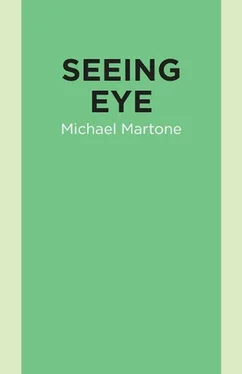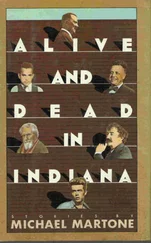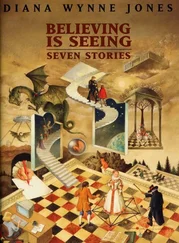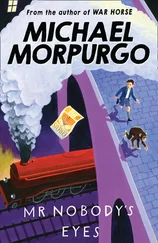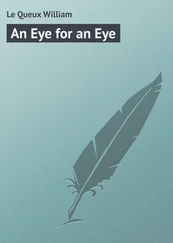Michael Martone - Seeing Eye
Здесь есть возможность читать онлайн «Michael Martone - Seeing Eye» весь текст электронной книги совершенно бесплатно (целиком полную версию без сокращений). В некоторых случаях можно слушать аудио, скачать через торрент в формате fb2 и присутствует краткое содержание. Год выпуска: 2013, Издательство: Dzanc Books, Жанр: Современная проза, на английском языке. Описание произведения, (предисловие) а так же отзывы посетителей доступны на портале библиотеки ЛибКат.
- Название:Seeing Eye
- Автор:
- Издательство:Dzanc Books
- Жанр:
- Год:2013
- ISBN:нет данных
- Рейтинг книги:5 / 5. Голосов: 1
-
Избранное:Добавить в избранное
- Отзывы:
-
Ваша оценка:
- 100
- 1
- 2
- 3
- 4
- 5
Seeing Eye: краткое содержание, описание и аннотация
Предлагаем к чтению аннотацию, описание, краткое содержание или предисловие (зависит от того, что написал сам автор книги «Seeing Eye»). Если вы не нашли необходимую информацию о книге — напишите в комментариях, мы постараемся отыскать её.
Seeing Eye — читать онлайн бесплатно полную книгу (весь текст) целиком
Ниже представлен текст книги, разбитый по страницам. Система сохранения места последней прочитанной страницы, позволяет с удобством читать онлайн бесплатно книгу «Seeing Eye», без необходимости каждый раз заново искать на чём Вы остановились. Поставьте закладку, и сможете в любой момент перейти на страницу, на которой закончили чтение.
Интервал:
Закладка:
“Oh,” Barbie said bending over to pet it, “so cute.”
This is what Vice Presidents do. Bury the dead and open factories. This factory had once made tractors for semitrailers, Trans Stars for the local van line company, and green Army two-and-a-halfs. The white star stenciled on the door. The factory is in Fort Wayne, in my home district. It had been a ruin for ten years, ever since Harvester closed the plant in favor of one in Springfield, Missouri.
When I was a kid, my father brought me up here. He was covering a rollout for the paper then. Crammed onto a reviewing stand, we watched the trucks blast around the banked track, stutter over a patch of cobblestones, then plow through a shallow pool splaying a wake of water from beneath each wheel. I got to climb up in the cab as the engine idled and rumbled beneath the seat. With my arms stretched wide I couldn’t hold both sides of the steering wheel.
On the way back to Huntington, my father tried to explain the future to me. The truck I had been in was just an idea, its model year two or three years away. I didn’t get it. I had smelled the diesel fumes, heard the sneeze of the air brakes. “Who know,” my father said, “a lot could happen.”
I let them love me in Fort Wayne. I swung a grant their way. Jawboned the locals for tax relief. Some people are working again. Let them blame that on me.
“I am really Malibu Barbie,” Barbie says to me. “The doll comes with a Frisbee, a tote bag, and a beach umbrella.” That is why she is wearing the swimsuit on this early spring day. The sky is as dirty as the grime on the big windows. Off in the distance, at the other end of the property, is the red brick bell tower. The old company logo, the small i bisecting the capital H to look like a gearshift pattern, still hangs crookedly just beneath the roof. The stink of the drawn copper from the wire works next door begins to coat my tongue.
“You from around here?” I ask her. Her neck is long and thin. Her swimsuit is made out of a miracle fabric in an animal hide print. She is wearing sheer hose that sparkle even in the bad light and hiss like scissor blades cutting construction paper when she walks.
Earlier, we toured the whole factory, even the abandoned parts. The new assembly line took up a fraction of the acres under roof. The toy car company had been started in the owner’s garage. At first he just made go-carts for the neighborhood kids. Then, as business grew, he moved to a Quonset hut in an industrial park. There is plenty of room to expand now.
Barbie’s heels snipped over the steel plate on the floor that had covered the conduits for cables that fed the old machines long removed. On the terrazzo I could see where they had been positioned from the footprints of discolored flooring outlined with filth. Here and there were rusting heaps of metal that could not be salvaged and yellowing scraps of paper that looked like scaling fungus on rotting trees. The factory opened up to three stories, the web of girders supporting the roof lost in the gloom. Dripping water from somewhere matched Barbie’s cadence. We stopped in the middle of the vast hall to rest. There was a little oasis of gunmetal stools and desk chairs on coasters. The Secret Service drifted on, their backs to us, spreading apart to form a perimeter, right on the edge of being seen. No one spoke. What light there was seemed to be drawn to Barbie, who swiveled slowly in the office chair. Her legs, crossed at the ankles, stretched out to keep her pointed feet off the floor. Her head was thrown back, the hard hat adhering to her hair. She closed her eyes as if she were sunbathing. She shimmered, bobbing like a needle in a toy compass slowly nudging north. I could hear the pigeons cooing in the rafters and then suddenly flapping after launching out, gliding into sight to land on the floor across the room.
“You know,” I said to Barbie, “we always live in the age of lead. We stand on the shoulders of giants.” I looked at her to see what impression I had made.
“Oh, I know,” she said. “Look at the toys these days. Nothing is left to the imagination.”
I felt like an accessory in a new play set. Call it Barbie’s Factory. Action figures and clothes sold separately. Any moment the vast roof could crack open, the walls hinging out. I am Midwestern Ken. A seed cap, dungarees, and a farmer’s tan.
Barbie is a head taller than I am. I sat quietly and watched her turn in the chair, propelled by invisible forces. The Secret Service whispered to each other in the shadows.
At the end of the day, we cut the ribbon. I grasp one handle with both my hands. Barbie has the other. I remember again the gigantic wheel of the truck. I am confused, confused again by size. I never fit. I never fit no matter what I do. The scissors are useless at cutting through the ribbon, the fabric folding then slipping between the blades. We end up tearing through it after the threads of the edge have been frayed enough by our frantic efforts. We pull the handles apart, then hurl them back together. The blades slicing closed smack with a kiss.
Barbie leans over and gives me a kiss. Her lips are waxy on my cheek. We pose that way. Barbie’s long neck stretched out as she nuzzles my face. A hand on each of my shoulders for support. I am smiling at the cameras. This is what I am thinking. I’m thinking: It’s a small moment of triumph no matter how you look at it.
The air is permeated with the tang of metal. I hold out in front of me the shiny keys that fit the brand-new pink Barbie Corvette I was given, which the Secret Service will later carry out to my limousine and store in the trunk like a spare to begin our trip back to Washington. And later still, in an intimate ceremony on the Mall, I will donate the car to the Smithsonian. Mattel will send another Barbie, this one dressed in a gold gown that might have been worn at an inaugural. Together, with the pink car roped off in one corner of the museum, we will have staked out our own little piece of history.
On Hoosier Hysteria
This is true. During the annual high school basketball tournaments in Indiana, the winning small towns send a team to the cities for the regional or semistate finals. Those towns empty completely for the games, the whole population evacuated by yellow buses and strings of private sedans and wagons. The Governor declares an emergency and sends a few state troopers or a truckload of the Guard to patrol the deserted streets.
I got sent to Marion one spring when that team was playing up in Fort Wayne. I was attached to a clerical unit stationed at Fort Benjamin Harrison outside of Indianapolis. We convoyed up from the south and parked on the outskirts of the ville as the residents streamed north. We could hear the horns. A muscle car sped by camouflaged with crepe paper and tempera. We were humping it into town, two files, one to a gutter, along the main street. The lieutenant sent a squad down a side street. Dogs barked. Up ahead was the small downtown of two-storied stores and offices. Hovering just above the brick buildings, a huge water tower seemed to float like a dark cloud, its supporting legs obscured by the buildings and trees. There was writing on its side that couldn’t be read from where I was, the town name and zip code perhaps, the sense of it stretched around out of sight. We had to hold the town for the day, and, if the team won its afternoon game, stay the night in bivouac set up on the high school football field.
It took us a few hours or so to walk the streets and rattle some door handles. Tacked up on every garage was a scuffed backboard and rotting net. I looked in the windows of the empty homes, saw the big glossy house and garden magazines scalloped on the coffee table, the dishrag draped over the faucet in the kitchen, an old pitcher filled with pussy willow branches in the middle of the dining table. Some places were unlocked, and I poked my head in, shouting to make sure no one was there. As I walked through one house, I listened to the clocks ticking. There was Eckrich meat in the refrigerator. I turned on the television and stood in front of it as it warmed up. The game was on, live, the boys going through warm-up drills at each end of the court. Somewhere in the crowd, the people who lived in that house shook pom-poms behind the cheerleaders. I stood there, too close to the set, in the living room, in full gear, my helmet on my head, cradling my rifle in my arms. The boys in their shiny outfits did layup after layup. Each of them took a little skip as he started to break for the hoop, meeting the feeding pass in midstride, the ball then rolling off his fingers, kissing the glass. A sergeant tapped on the picture window. “Quayle,” he said, his voice filtering into the house, “get your butt out here.”
Читать дальшеИнтервал:
Закладка:
Похожие книги на «Seeing Eye»
Представляем Вашему вниманию похожие книги на «Seeing Eye» списком для выбора. Мы отобрали схожую по названию и смыслу литературу в надежде предоставить читателям больше вариантов отыскать новые, интересные, ещё непрочитанные произведения.
Обсуждение, отзывы о книге «Seeing Eye» и просто собственные мнения читателей. Оставьте ваши комментарии, напишите, что Вы думаете о произведении, его смысле или главных героях. Укажите что конкретно понравилось, а что нет, и почему Вы так считаете.
